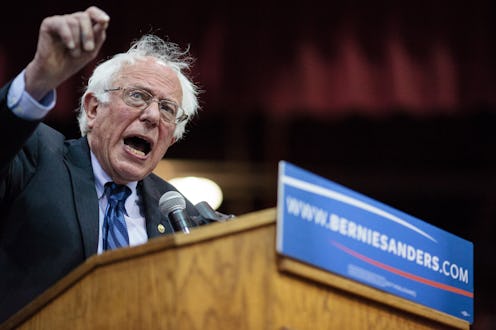News
One Way Bernie Sanders Can Beat Hillary Clinton
After Bernie Sanders' 15.4 percent lead over Hillary Clinton in Tuesday night's West Virginia primary, some Americans might question whether or not Clinton actually has this race in the bag. Sanders has, as of May 10, secured 19 states in the race for the Democratic presidential nomination, while Clinton carries 23 states. Yet she still bests him by 283 pledged delegates — which, while not whole lot in the greater scheme, may prove a difficult feat for Sanders to overcome with so few primaries remaining. Voters might be wondering about the minimum average percentage of votes it would take for Sanders to surpass Clinton in each of the eight remaining states (and Washington, D.C.).
The answer is not overwhelmingly positive for Sanders. The fact is that he could win each of the following nine primaries and still win fewer delegates than Clinton. It is wholly dependent on the percentage of votes he averages in each primary. As it stands, Sanders would have to average close to 68 percent in every remaining primary in order to surpass Clinton. It's a difficult number for any candidate to achieve, and the math doesn't seem to work out in his favor.
Of course, there are alternative ways for Sanders to surpass Clinton, thus making it less of a priority for him to achieve that average. For example, if he can do particularly well in California, which carries 475 delegates, or New Jersey, which has 126, then he will secure a significant number of delegates without averaging exactly 68 percent at each of the primaries. But he would have to do really well in either of those states, or really well in a state like New Jersey and then extremely well in the majority of other states — and D.C. In other words, this is no easy feat. This is why plenty of articles have stated that Clinton will likely take the Democratic nomination.
To say that Sanders has absolutely no mathematical chance of winning the Democratic pledged delegate race is a fallacy. Of course, he'll never exceed Clinton in super delegates, but big wins in California, New Jersey, and most everywhere else — or a consistent average voting percentage of 68 — could propel him to victory at the Democratic National Convention in Philadelphia. Is it likely? Who knows? Is it worth a shot? Absolutely. Only the primaries of May 17, June 7, and June 14 remain in the race for the Democratic nomination, so get voting!
